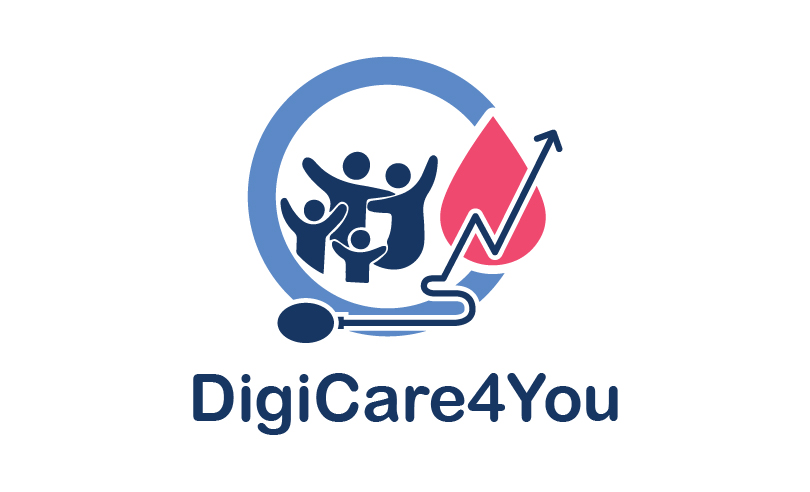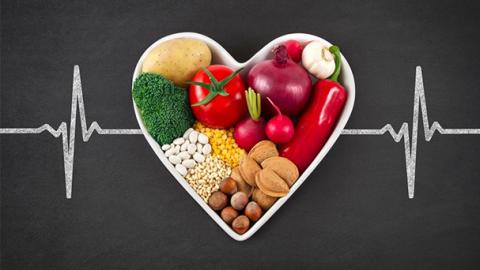High blood pressure or hypertension is very common and an important risk factor for the development of heart disease and stroke, especially if left untreated.
Having high blood pressure means that your heart has to work harder to pump blood around your body. According to the European Society of Cardiology, hypertension is defined by a systolic pressure greater than 140 millimeters of mercury or diastolic pressure over 90.
If you've been diagnosed with high blood pressure, medication isn't the only method of treatment. Alongside medication, many changes to your lifestyle and diet can help reduce blood pressure.
1. Reduce salt intake
Increased salt intake has been associated with hypertension. Specifically, sodium (Na), which is a basic component of salt, leads to fluid retention, an increase in blood volume and, by extension, an increase in blood pressure. For adults, the World Health Organization recommends less than 2000 mg/day of sodium, equivalent to less than 5 g/day salt (just under a teaspoon) to reduce the risk of developing high blood pressure and heart disease. This amount refers to the total intake of salt during the day, that is, both the added salt we use while cooking or eating, as well as the salt contained in the various foods we consume. In general, all the foods in our daily diet naturally contain small amounts of sodium. However, ultra-processed foods are one of the main dietary sources of sodium and should therefore be consumed in moderation.
Recommendations:
- Eliminate salty foods from your diet and reduce the amount of salt used in cooking.
- Pay attention to hidden sources of sodium. Canned and frozen vegetables, salted foods, packaged foods, cold cuts, broths, ready-made sauces, concentrated tomato juice, olive paste, salted butter or margarine, processed products are some foods with high salt content that need attention.
- Choose low sodium foods. Many salt-free or reduced salt products are available. A key point is to read the food labels to identify foods high in sodium. Items with 400 mg or more of sodium are high in sodium and items with 140 mg of sodium per serving are low in sodium.
- Reduce frequency of consumption of fast food and snacks with a lot of salt such as chips and crisps.
- Choose your cheese wisely. Replace cheeses that are high in sodium (regular and processed cheese, cheese spreads and sauces) with cheeses with low sodium such as cream cheese, ricotta, mozzarella, low-sodium feta cheese etc.
- Be creative and season your food with spices, herbs, lemon, garlic, ginger, vinegar and pepper. Remove the saltshaker from the table.
- Eat more home-cooked meals.
2. Consume enough potassium
Foods rich in potassium are important for managing high blood pressure because potassium reduces the effects of sodium. Potassium also helps reduce tension in blood vessel walls, which helps to further lower blood pressure. Low potassium intake has been associated with an increased risk of high blood pressure. The recommended amount of potassium for an average adult is 4,700 mg per day. Potassium can be found in many fruits and vegetables, such as bananas, kiwi, tomato, apricots, dates, potatoes, avocado, spinach, lentils, wholegrain cereals and breads, nuts and dark chocolate.
3. Maintain a healthy body weight
Maintaining a healthy body weight is one of the most important factors when it comes to managing your blood pressure. As body weight increases, so do the demands on the heart, which leads to an increase in blood pressure. Excess weight is closely associated with hypertension. Therefore, a weight reduction of 5-10% of your initial weight can normalize your blood pressure.
4. Reduce alcohol
People with hypertension should be advised to limit their alcohol intake as frequent alcohol consumption is a habit that can raise blood pressure. In general, even moderate alcohol consumption (1-2 drinks/day) appears to be associated with an increased risk of hypertension.
If you are a regular drinker, try to limit the amounts to no more than 100g/week of pure alcohol. One drink portion (standard drink-equivalents) corresponds to: 45 ml high alcohol drink such as vodka, whiskey, gin (40% alcohol), 120 ml wine (12% alcohol), 1 can of beer (330ml, 5% alcohol). Each of these standardized servings contain 14-16 g. of pure ethanol.
Remember when it comes to alcohol, the best advice is "the less, the better."
5. Quit smoking
Smoking is a major risk factor for hypertension and cardiovascular disease. Even one cigarette is enough to increase the activity of the sympathetic nervous system leading to a temporary increase in blood pressure, which returns to normal levels after about 30-60 minutes. This practically means that the typical smoker's blood pressure fluctuates significantly throughout the day.
6. Adopt a balanced diet
Studies have shown that eating a balanced diet that includes foods rich in potassium, magnesium, calcium and fiber helps lower blood pressure.
- Fruits and vegetables are rich in potassium, magnesium and fiber. Try to eat at least five servings a day.
- Dairy is a good source of calcium. However, because some may be rich in saturated fat, opt for low-fat alternatives.
- Whole grain foods are high in fiber, potassium and magnesium.
- Oily fish is rich in omega-3 fatty acids, which have been shown to help lower blood pressure, e.g., salmon, sardines, mackerel, herring and trout. Try to consume at least 1-2 servings of fish per week.
7. Be physically active
Exercise has a positive effect on blood pressure. For people with high blood pressure, it is recommended:
- At least 150-300 minutes of moderate-intensity or 75-150 minutes of vigorous-intensity aerobic exercise per week, or a combination of the above
- Strength training 2-3 times/week
- Limit sedentary time
8. Manage your stress levels
Stress-related behaviours are likely to lead to high blood pressure. Make sure you get enough sleep and practice relaxation techniques such as meditation, reading, ecotherapy (doing outdoor activities) that may help you cope with stress. Eating a healthy diet and exercising regularly may also help you managing your stress levels.
Written by: Rafaela Makri, Nutritionist-Dietitian, PhD-c, Research Associate and Country Project Coordinator (Greece), Harokopio University
References:
- Eufic, 7 lifestyle tips to help reduce blood pressure
- Word Health Organization, Salt reduction
- American Heart Association, How Potassium Can Help Control High Blood Pressure
- British Dietetic Association (BDA), Hypertension Food Fact Sheet
- 2024 ESC Guidelines for the management of elevated blood pressure and hypertension

